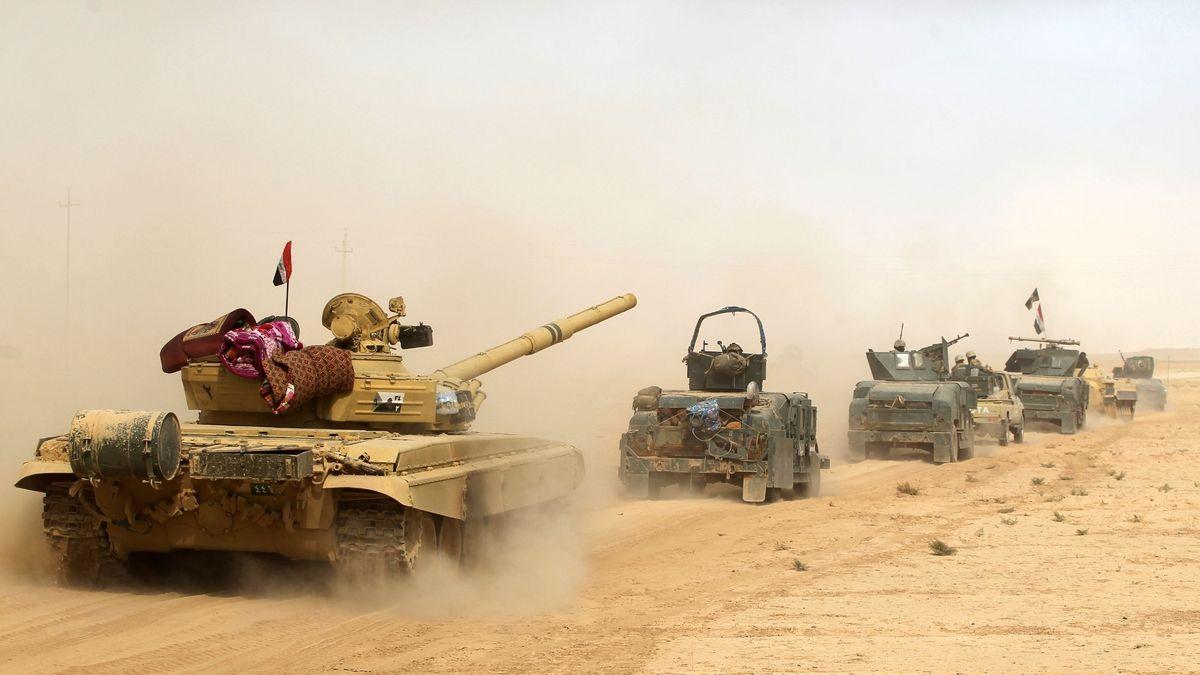
Former soldier killed in Iraq when ISIS bomb he was trying to defuse exploded
An ex-soldier died when a bomb left by ISIS in Iraq exploded as he tried to defuse it, an inquest heard today.
Stuart Coburn, 43, was working as a contractor for an international mine clearance company in Ramadi when he died in August 2016.
The former Army sergeant major was attempting to neutralise the improvised explosive device (IED) inside a large skip when it detonated, Somerset Coroner’s Court was told.
The device was made from five gas canisters and was accompanied by a radio control trigger.
It was set off by a mobile phone and a dead man’s switch which could activate via movement.
ISIS had left the IED behind when it was driven from the area by Iraqi security forces in early 2016.
Giving evidence, Brigadier Gareth Collett, who retired from the Army as the Ministry of Defence ’s senior explosive ordnance engineer and head of the bomb disposal, said ISIS would have planned to put the skip on the back of a lorry and target military personnel.
He said: “What Islamic State had was time – a lot of time to make a lot of devices.
“The radio-controlled devices were pretty well made and designed.
“When you are dealing with that level of skill or sophisticated device, you either leave it or wait for someone suitably qualified to come and deal with it.”
Brig Collett said the radio-controlled trigger would have been the backup – and the primary method of detonation was the dead man’s switch controlled by a suicide bomber driving the skip lorry.
He said: “The attrition rate was very high and they were being decimated by the coalition response and they probably ran out of lorries to put that skip on to.”
ISIS members could have been watching the IED, prepared to set it off with a phone, Brig Collett said, but it is unlikely.
To try and stop bombs being set off remotely, Iraqi authorities used electronic countermeasures to jam mobile phone signals, the inquest was told.
Senior Somerset coroner Samantha Marsh asked Brig Collett what the British military would have done in the circumstances.
He replied: “On initial discovery, we would have left it as Mr Coburn did.
“We would have discussed with the elders and the chiefs in the village.
“We would have come back with electronic countermeasures.
“The first thing to do is take control of the switch.
“You have to be able to dominate the area and if you can do that you want electronic measures to drive them out of the area.”
The international contractors did not have access to jammers on the day of the blast and were not allowed to blow the IED up, the inquest heard.
Asked what most likely caused the explosion, Brig Collett said: “You are asking me what do I think happened?
“I think it was probably the way in which the wires were cut.
“The safest outcome would have been to refer it to the Iraqi authorities – it’s their responsibility and they have the duty to their people.
“I would have blown it up where it was but hindsight is a wonderful thing.
“The device was high risk but the environment around it was low risk so what’s the rush?
“When you meet these people that have absolutely nothing and you see these awful things in the way, you want to try and help.”
Source: mirror





